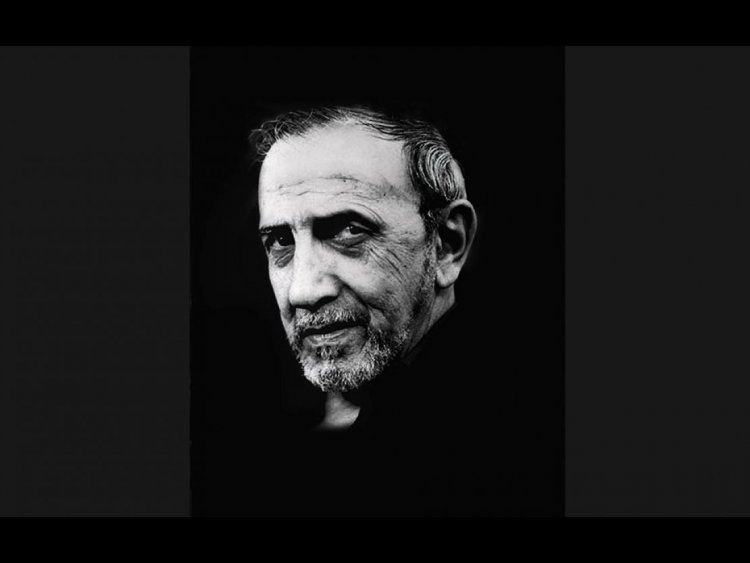Ibrahim Alkazi: The Forerunner of Indian Contemporary Theatre

Ibrahim Alkazi, the legendary director of Indian theatre breathed his last at the age of 94 on 4th August. He died of a heart attack in a private hospital in Delhi. Ibrahim Alkazi worked with many Bollywood actors.
Faisal Alkazi, son of Ibrahim Alkazi, confirmed his death. Faisal said that Ibrahim Alkazi died at 2.45 pm on Tuesday afternoon after a heart attack. He was admitted to Escort Hospital two days ago.
Ibrahim Alkazi is known for bringing a kind of new revolution in theatre in India. He was one of Mumbai's most popular theatre artists from 1940 to 1950.
The young Alkazi began his theatrical career in the English-language Theatre Group of Sultan “Bobby” Padamsee, a pioneer of the English theatre movement in India. When Alkazi initiated his own Theatre Unit in 1954, he began to revolutionize Indian theatre by taking a professional and technically informed approach to all aspects of the craft, from stage management to character delineation to lighting and props.
At the age of 37, Ibrahim Alkazi moved to Delhi and held the post of director at the National School of Drama for 15 years. He was the first person to have served the National School of Drama for so long. He introduced cutting-edge training methods, academic rigour, technical discipline, and international standards in an attempt to professionalize the already-vibrant Indian theatrical scene.
While living there, Ibrahim Alkazi taught the nuances of modern theatre to students and artists. Ibrahim Alkazi produced many popular plays like Girish Karnad's 'Tughlaq', Dharamvir Bharti's 'Andhayug'. Ibrahim Alkaji taught the nuances of acting to many actors including Bollywood veteran Naseeruddin Shah and Om Puri.
Initially, of course, he had to make do with more mundane settings. “There was an open space behind the tent-wallah’s house, we picked up stones and built a little makeshift stage there, lined with cow dung and with a thatched roof.” Later they would move to a more sophisticated venue - the Rabindra Bhavan building near Mandi Chowk – but those early days were heady ones.
The breakthrough came one memorable evening at the Ferozshah Kotla stadium, where he got permission from the Archaeological Survey of India to stage Andha Yug, a powerful drama set in the immediate aftermath of the Mahabharata War. “Pandit Nehru came to watch it, and naturally this meant a coterie of diplomats and huge crowds followed him.” So makeshift was the setting that at one point in the play, when a group of characters are required to move towards the audience, Nehru’s bodyguards came forward to counter the threat. It was an extremely successful performance on the whole, even though it ended with the Prime Minister gravely warning Alkazi to “watch out for snakes” when he staged his productions near old monuments!
Alkazi believes his greatest strength as a director was his desire to keep adding to his knowledge: “The thing to know is that you don’t know enough.” This is a remarkable philosophy for someone of his age and experience to adopt, but he still follows it tirelessly; much of his time is spent reading, researching, and learning new things about his areas of interest. “He was always extremely well-read, a walking library,” director Vijay Kashyap, who worked with him on such productions as Tughlaq and Razia Sultan, told me, “and yet he never used high-flowing words- he explained everything in very simple language.”
Alkazi directed more than 50 plays, including works by celebrated Indian playwrights such as Mahesh Elkunchwar and Girish Karnad and several adaptations of Shakespeare. Among Alkazi’s critically acclaimed directorial ventures are Dharamvir Bharati’s Andha yug (published 1953; The Blind Age), Samuel Beckett’s Waiting for Godot (1952), Mohan Rakesh’s Ashadh ka ek din (1958; One Day in Ashadha), and Karnad’s Tughlaq (1964), the last of which is generally considered to be Alkazi’s finest.
For his contribution to Indian arts, Alkazi received several awards, including the Sangeet Natak Akademi Award for Direction (1962) and three Padma awards (which are among India’s highest civilian awards): the Padma Shri (1966), for distinguished service; the Padma Bhushan (1991), for distinguished service of high order; and the Padma Vibhushan (2010), for exceptional and distinguished service.
After 1977 he was less engaged in the theatre.
He became a tireless promoter and patron of related aesthetic endeavours, especially in visual arts. As director of the Art Heritage Gallery in New Delhi, Alkazi was among the first promoters of modern artists such as Maqbool Fida Husain. The Alkazi Collection of Photography at Sepia International gallery in New York City is one of the world’s largest private collections of historical photographs. Its emphasis is on 19th- and early 20th-century images of India, Myanmar (Burma), and Sri Lanka.
PM Modi said that he will be remembered for his efforts to make art more popular and spread it across India.
Prime Minister Narendra Modi tweeted, 'His contribution to the art and culture world is remarkable. Mr. Ibrahim Alkaji will be remembered for his efforts to make theatre more popular and to spread it across India. I am saddened by his death. My condolences are with his family and friends. May his soul rest in peace.'
Ebrahim dedicated his time and resources to establishing the Art Heritage in New Delhi, along with his wife Roshan Alkazi, encouraging artists and scholars working in the plastic arts and mounting over 500 exhibitions. In an effort to enlarge the audience for contemporary art, he launched several large projects, including international exchange exhibitions, publications and scholarship awards. The most visible of these programmes was a four-part series of exhibitions and accompanying publications entitled India: Myth and Reality presented in association with David Elliott and Victor Musgrave at the Museum of Modern Art, Oxford in 1982. In collaboration with Dr. Mildred Archer, Toby Falk, and other distinguished scholars, he brought out scholarly works which contributed significantly to the art history of the sub-continent.
Apart from Prime Minister Narendra Modi, Arvind Gaur, director of Asmita Theater Group, has also paid humble tribute to Alkaji's death. He has written a long post through his Facebook account. Through which he has tried to convey the personality of Alkaji to a great extent. Arvind Gaur wrote in his post, “Last pillar of modern Indian theatre era and senior director Venerable Ibrahim Alkazi. The passing of Ibrahim Alkazi is an unbearable loss to the Indian theatre and art world. He has a unique and historical contribution in setting up contemporary theatre after independence.”
He further wrote, “Ibrahim Alkazi did active theatre in Mumbai after studying drama in 1947 from Rada in London. Then took over as the second director of the National School of Drama in 1962. From the presentation of the drama in the Indian theatre to the set, light, design, Alkaji did a wonderful job. In the training of the actor, new standards of craft and technique were established in theatrical performances, including modern method. His major productions include Shakespeare with Girish Karnad's Tughlaq, Dharamvir Bharti's Andhayug, Mohan Rakesh's A Day of Ashada. There is also Moulier and Greek Tragic drama. From 1962 to 1977, this was the golden period of NSD. During this time Indian theatre was taking a new look. The strict discipline and planned style was the hallmark of Alkaji. It is a matter of inflammation that how Ibrahim Alkaji, who was thinking with English rites, was spreading the fabric of Hindi theatre as well as future Indian theatre. By what method were they laying a strong foundation?”
Arvind further writes, “Ibrahim Alkaji became a living legend in his life. But he confined himself to work. Constant activism and positive energy were part of his style of work. After leaving school, 77 did not look back for a long time. During this time historical works got involved in painting and art conservation work. Ibrahim Alkazi took an active part in the protest meetings that followed the assassination while pretending to Safdar Hashmi. Alkazi then returned to the theatre world to do three plays with the NSD theatre. Humble tribute.”
As many believe he was indeed the prime principal of the Modern Indian Theatre and we bow down, paying our utmost respect for him and his limitless contributions to the theatrical art.
RIP Ibrahim Alkazi!















































